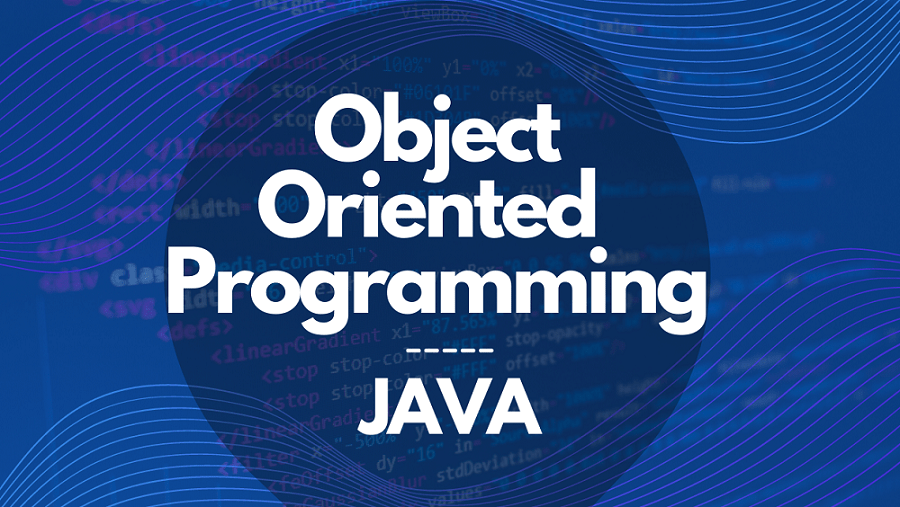Ηλεκτρονική Υγεία και Ιατρική Πληροφορική
- Teacher: Marios Neophytou
- Teacher: Eirini Schiza
Ηλεκτρονική Υγεία και Ιατρική Πληροφορική


Το μάθημα έχει στόχο να διδάξει τα βασικά της αντικειμενοστρεφoύς ανάλυσης, σχεδιασμού και προγραμματισμού με τη γλώσσα προγραμματισμού Java. Βασικός σκοπός του μαθήματος είναι να εξοικειώσει τους φοιτητές με τις αρχές του Αντικειμενοστρεφούς Προγραμματισμου (object-oriented programming), να τους βοηθήσει να αναπτύξουν επάρκεια στη χρήση της Αντικειμενοστρεφούς Μεθοδολογίας και της γλώσσας Java για την επίλυση υπολογιστικών προβλημάτων, στη χρήση προχωρημένων προγραμματιστικών τεχνικών και στην επίλυση πολύπλοκων προβλημάτων. Οι φοιτητές θα αποκτήσουν εμπειρία στην ανάπτυξη λογισμικού σε μεγαλύτερη κλίμακα και στην ομαδική εργασία.

The course teaches intermediate and advanced programming concepts, techniques and tools through a language that compiles to machine code. The course familiarizes the students with advanced programming constructs utilized for handling memory and files. Advanced topics in compilation, debugging, documentation and optimization of software. Methodological aspects in developing large-scale system software that addresses complex problems. Basic commands for programmers in the UNIX operating system. i) Introduction to C for Programmers: types x86/x64, loops, selections, expressions, arrays, functions, IO, basic program organization, ii) Advanced C programming constructs: program anatomy and processes, memory and addresses (pointers, pointers and arrays, strings and examples), structures, unions and enumerations. Linear and non-linear programming data structures (dynamic memory allocation, lists, queues, doubly-linked lists, trees, applications and examples). iii) Advanced Compilation Topics and Tools: preprocessor directives, compiling multiple files with makefiles, static (.a) and dynamic (.so) linking of object files (.o), error handling (assert.h), static and dynamic code analysis (valgrind and gprof). iv) low-level programming (binary operators and examples, binary files and hexdump). v) Basic commands for programmers in the UNIX operating system: file system, redirection and pipes, permissions and basic filters.
The main objective of this undergraduate course is to provide an in-depth understanding of concepts related to the design and utilization of a database management system. Students will get a deeper understanding by implementing these concepts in a commercial database management system. The course is organized in four parts: i) Introduction and Conceptual Modeling using the ER Model, ii) Relational Model and Relational Algebra, iii) Structured Query Language III, and iv) Database Design Theory and Methodology
Outline: Introduction: Databases and Database Users, Database System Concepts and Architecture, Data Modeling Using the Entity-Relationship (ER) Model, The Enhanced Entity-Relationship (EER) Model, The Relational Data Model and Relational Database Constraints, Relational Algebra, Relational Database Design by ERand EER-to-Relational Mapping, SQL-99: Schema Definition, Constraints, Queries, and Views, Introduction to SQL Programming Techniques, Functional Dependencies and Normalization for Relational Databases, Relational Database Design Algorithms and Further Dependencies, Practical Database Design Methodology.
Course Website: https://www.cs.ucy.ac.cy/courses/EPL342/

ΕΠΛ 343 - Τεχνολογία Λογισμικού
Το μάθημα αποτελεί μια εισαγωγή στον κλάδο της Τεχνολογίας Λογισμικού, ο οποίος ασχολείται με τις μεθοδολογίες και τα εργαλεία που απαιτούνται για την ανάπτυξη ποιοτικών συστημάτων λογισμικού.

The course teaches the basic principles of computer graphics. The course familiriazes students with the concepts of scene construction, scene hierarchies, camera specification, projections of primitives, clipping, visible surface determination, polygon rasterisation (z-buffer), texture mapping, local and global illumination, shadows, ray tracing, radiosity, real-time acceleration techniques. Provision of both the theoretical foundations as well as practical skills through the use of industry standards, such as OpenGL and the Unity game engine.
Η Αλληλεπίδραση Ανθρώπου-Υπολογιστή είναι η γνωστική περιοχή της πληροφορικής που μελετάει το σχεδιασμό, την ανάπτυξη και την αξιολόγηση διαδραστικών υπολογιστικών συστημάτων (interactive computer systems) δηλαδή συστημάτων που αλληλεπιδρούν με τους χρήστες τους (ACM SIGCHI, "Curriculum for Human-Computer Interaction", Special Interest Group on Computer-Human Interaction Curriculum Development Group, New York, 1992). Σκοπός του μαθήματος είναι η επισκόπηση θεωρητικών μοντέλων που αφορούν στην αλληλεπίδραση ανθρώπων μηχανών, και μελέτη των τεχνολογιών, μεθόδων και εργαλείων για τη σχεδίαση και ανάπτυξη διαδραστικών συστημάτων λογισμικού.
Σκοπός του μαθήματος είναι η εισαγωγή των φοιτητών στις δυνατότητες που παρέχουν οι τεχνολογίες πληροφορικής στην ιατρική και κλινική πρακτική, κυρίως μέσα από τη μοντελοποίησης της ιατρικής πράξης, των διαδικασιών και της γνώσης, από τους τρόπους διαχείρισης, προτυποποίησης, και παρουσίασης της πληροφορίας.
Επίσης, στοχεύει στο να εισάγει τον σπουδαστή στις πηγές των απαιτήσεων της υγείας όπως για παράδειγμα με τις εφαρμογές ηΥγείας, όχι μόνο σε επίπεδο των υπηρεσιών υγείας, αλλά και θέματα πρακτικής εφαρμογής τους. Επιπλέον, η εκπαιδευτική ενότητα θα προσφέρει την αναγκαία γνώση που αφορά στις έννοιες και στα δομικά στοιχεία που αποτελούν τα πληροφοριακά συστήματα της υγείας.

The purpose of the MAI611 AI Fundamentals course is to introduce students to the fundamental principles and techniques that underline software systems that exhibit “intelligent” behavior.
Upon completion of this course, students will have acquired a good understanding of symbolic Artificial Intelligence, the problems that it addresses and the fundamental solution methods that it uses. More specifically the students will know the main knowledge representation techniques and reasoning methods that underlie artificial intelligence problem solving and be able to develop simple solvers for artificial intelligence systems.
The course introduces the fundamental principles and methods used in Artificial Intelligence to solve problems, with a special focus on the search in the state space, action planning, knowledge representation and reasoning, constraint satisfaction, intelligent agents and on the methods for dealing with uncertain knowledge. The course content includes the following thematic units:
· Introduction to Artificial Intelligence: Turing test for machine intelligence, historical perspective, symbol processing, algorithms and heuristics, main application fields, introduction to knowledge-based systems and architectural organization.
· Problem Solving in AI: Representation problem, navigation mechanisms (blind search, heuristic guidance), classification and synthesis problems, frame problem. Games. Constraint satisfaction problems. Search methods, meta heuristics, solving through decomposition, constraint relaxation, branch-and-bound techniques. Linear planning.
· Intelligent Agents and Multiagent Systems: Autonomous/rational agents, abstract and concrete architectures, communication, interaction, and communication between agents.
· Knowledge Representation and reasoning: Distinction between data, information and knowledge, expertise (types of knowledge), desirable practical and theoretical properties, descriptive/declarative versus procedural representation. Predicate logic. Conjunctive Normal Form and resolution-refutation. Horn clauses and negation as failure. Representing Terminological Knowledge: semantic networks, frames and inheritance. Uncertainty and probabilistic reasoning.
· Rule-based systems: Production rules, control structure and rule chaining, forward chaining and RETE, backward chaining, goal-driven reasoning and explanations, meta-rules, strategic explanations. Limitations of rule-based systems.
· Expert Systems Technology: Basic forms of reasoning (deduction, abduction, induction). First and second generation of expert systems (deep knowledge-based systems, multi-modelling, strategic explanations, collaborating specialists, generic tasks architecture).
· Knowledge engineering methodologies: Developing and modelling expertise, total task investigation methods, basic principles, and multiple models of CommonKADS methodology.
· Case-based reasoning as an alternative paradigm to model-based reasoning supporting incremental learning.
· Intelligent Data Analysis: Data mining and data abstraction.
· AI and Explanations: The significance of explanations in AI, some theories of explanation that have influenced AI, tracing the history of explanations in symbolic AI (rule-based, abductive, causal, case-based, strategic, explanations), the resurgence of interest in explanation in connectionist AI (XAI) – opening the ‘black box’.
This interdisciplinary course covers a variety of topics within the intersection of Artificial Intelligence and Human-Computer Interaction, with an emphasis on incorporating human factors in intelligent interactive systems’ design. Specifically, it covers: i) theoretical foundations of intelligent user interfaces and the importance of human factors in such contexts; ii) state-of-the-art processes and techniques for implementing intelligent interactive systems; and iii) research and practice on how intelligent user interfaces can be applied in various application domains.

https://dmsl.cs.ucy.ac.cy/


This course is designed to provide academic staff, who have little or no experience with online teaching, with the support to transfer study-units from a face-to-face to a blended or online format. The course has been selected for an Honorable Mention award in the E-Learning category of the 2020 International E-Learning Awards, given by the International E-Learning Association.
This is a decription about the course ...
NCPeH CY cross boarder services





https://ec.europa.eu/inea/en/connecting-europe-facility
EESSI Training